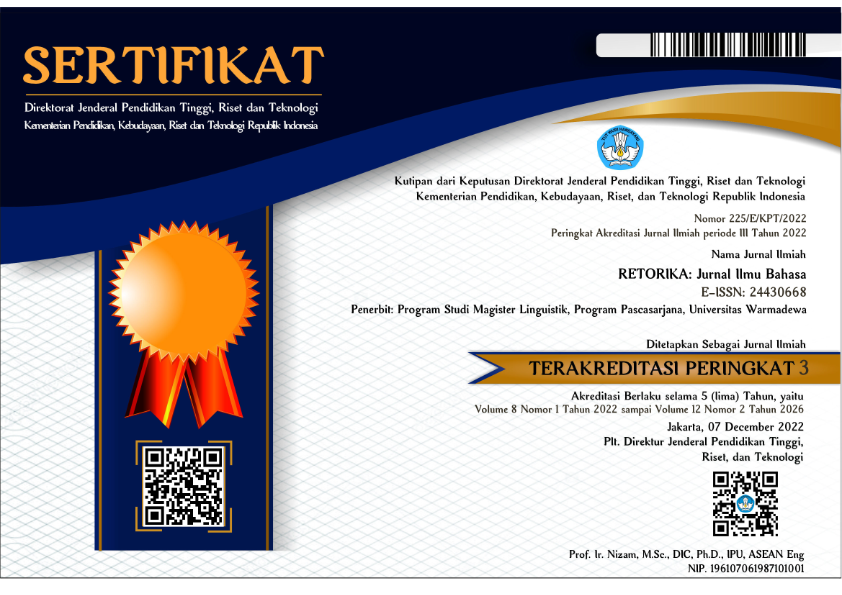An Analysis of Politeness Maxims in the Movie “The Adventure of Tintin”
Abstract
This study explored the types of politeness maxims that the main characters utilized and investigated the factors that influenced their use. The data were collected through focusing on observing main character specially "Tintin" interactions and circumstances during communication, with simultaneous notetaking to record pertinent instances of politeness maxims and use qualitative method. This methodology employs a data-driven approach, wherein data is initially gathered and subsequently analyzed to ascertain its relevance to a specific politeness maxim. Transcriptions were created based on the dialogues exchanged between the characters. In this study, analyze the politeness maxims observed in character interactions and dialogues within "The Adventure of Tintin." Drawing upon theories proposed by Leech, Holmes, and Wardaugh, reveal the tact and agreement maxims as the most frequently employed. This analysis demonstrates their significant role in shaping positive communication, character interactions, cultural nuances, and thematic elements within the film. Through meticulous examination, highlight the prevalence, influence, and contribution of these maxims to the narrative coherence and thematic depth of the movie
References
Altarriba, J., & Basnight-Brown, D. (2022). The Psychology of Communication: The Interplay Between Language and Culture Through Time. Journal of Cross-Cultural Psychology, 53(7–8), 860–874. https://doi.org/10.1177/00220221221114046
Andriyani, A. A. A. D., Ardiantari, I. A. P. G., Santika, I. D. A. D. M., & Nurita, W. (2022). Language Politeness Strategy in Japan-Bali Intermarriage among Balinese Family. Eurasian Journal of Applied Linguistics, 8(3), 134–141.
Brown, P., & Levinson, S. C. (1987). Politeness: Some Universals in Language Use. Cambridge [Cambridgeshire]: Cambridge University Press.
Chaer, A. (2009). Sintaksis Bahasa Indonesia. Jakarta: Rineka Cipta.
Cruse, D. A. (2004). Meaning in Language: An Introduction to Semantics and Pragmatics. Oxford: Oxford University Press.
Holmes, J. (2013). Women, Men and Politeness. Routledge. https://doi.org/10.4324/9781315845722
Leech, G. (1983). Principles of Pragmatics. London: Longman.
Wardhaugh, R. (1986). An Introduction to Sociolinguistics. Oxford: Blackwell.
Woensdregt, M., & Smith, K. (2017). Pragmatics and Language Evolution. In Oxford Research Encyclopedia of Linguistics. Oxford University Press. https://doi.org/10.1093/acrefore/9780199384655.013.321
Yule, G. (1996). Pragmatics. Oxford: Oxford University Press. https://doi.org/10.1017/S0272263198224053
Copyright (c) 2024 RETORIKA: Jurnal Ilmu Bahasa

This work is licensed under a Creative Commons Attribution-ShareAlike 4.0 International License.
This journal provides immediate open access to its content on the principle that making research freely available to the public supports a greater global exchange of knowledge.
All articles published Open Access will be immediately and permanently free for everyone to read and download. We are continuously working with our author communities to select the best choice of license options, currently being defined for this journal as follows: Creative Commons-Non Ceomercial-Attribution-ShareAlike (CC BY-NC-SA)
 Abstract viewed = 14 times
Abstract viewed = 14 times
 PDF downloaded = 10 times
PDF downloaded = 10 times

2.png)














